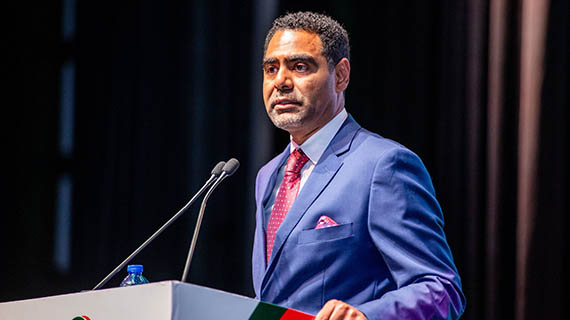The Football Kenya Federation (FKF) is facing a crippling financial crisis, weighed down by legal fees and mounting liabilities that have severely disrupted its operations.
According to FKF’s Annual Report and Financial Statements for the year ending December 31, 2024, the federation spent Ksh 269.8 million on external legal counsel. Additionally, it reported pending legal liabilities of Sh19 million linked to cases before the FIFA tribunal.
FKF President Hussein Mohammed confirmed over the weekend that the federation is managing financial obligations exceeding Ksh 600 million, citing legal disputes and inherited debts as major contributors. “We are navigating financial obligations of over Sh600 million, which has placed pressure on our ability to deliver on key programmes,” Hussein said during a press briefing at Kasarani on Saturday.
An audit by the FKF Transition Committee revealed that the federation is entangled in 21 legal cases, involving election disputes, unpaid legal fees, and unresolved contractual issues—some dating back to previous administrations.
One of the major legal battles involves AFS International GMBH, a private company demanding Sh35.7 million from FKF over unpaid debts, despite repeated demands for settlement.
International sanctions have further complicated FKF’s financial position. Following the unlawful dismissal of former Harambee Stars head coach Adel Amrouche, FIFA has ordered a Sh5.5 million deduction from FKF’s Forward funds to address late payment penalties related to the Sh109 million owed to the coach. “The deduction will take effect in the next allocation,” Hussein confirmed.
Adding to the financial strain, the Kenya Under-17 women’s national team was fined Ksh 400,000 during the 2024 FIFA U-17 Women’s World Cup in the Dominican Republic.
As legal costs continue to escalate and funding is diverted to settle past obligations, FKF’s ability to fund grassroots football, national teams, and league operations remains under threat. The leadership has pledged to pursue long-term financial restructuring, but the path ahead remains uncertain.
Written By Rodney Mbua



















